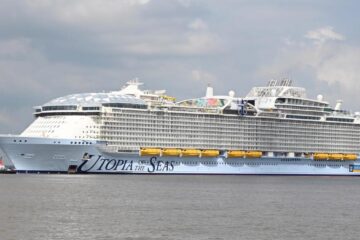It has been a bleak period for struggling restaurants. Some chains have drowned in debt.
Boston Market, for example, owes its top vendor millions of dollars, has massive tax debt, and its owner has been legally barred from filing for Chapter 11 bankruptcy. That has left the once-proud national chain down to a handful of locations and little corporate heft to support them.
Related: Discount retailer’s Chapter 11 bankruptcy turns into liquidation
That’s an extreme case where the company’s problems likely go deeper than added debt due to the Covid pandemic and an expensive capital market where it’s hard to raise money.
In many cases, however, the many small chains and franchise operators (including multiple Burger King franchisees) that have filed for Chapter 11 bankruptcy protection fell victim to market conditions.
Many saw sales drop or go to zero during the darkest lockdown days of the pandemic, which forced them to take on debt. When that period ended, the owners not only had to service the debt, they faced higher supply-chain and labor costs and a cautious public driven — at least in the fast food and fast casual spaces — to seek out value.
It’s a challenging situation that almost claimed another national chain with more than 500 locations. But the company has found a savior.
Want the latest cruise news and deals? Sign up for the Come Cruise With Me newsletter.
Image source: Shutterstock
Mod Pizza has a lot of competition
Mod Pizza uses the personal make-your-own-pizza model made popular by Blaze Pizza and various other chains. This novel idea brought Chipotle-like customization to the pizza market, but it was never something one company could dominate.
In many ways, the make-your-own-pizza business became like self-serve frozen yogurt. People like it, but the novelty wore off over time, and most towns might support one chain selling it but might not provide enough business for two or three.
The company has been around for a while and shares its origin story on its website.
“When Scott and Ally Svenson founded Mod Pizza in 2008, they knew the last thing the world needed was another pizza place,” the company writes. “In their hometown of Seattle, they imagined a new way for people to enjoy pizza, by bringing speed, individual style, and value to one of America’s favorite foods.”
The concept worked, at least to a point: The company, founded in 2008, closed 2023 with 553 restaurants after years of steady growth.
“Through that growth, Mod even considered an IPO in 2021, though that market debut never happened,” Nation’s Restaurant News reported. “At that time the company was still riding momentum from a 2019 $160 million equity investment, which sparked the company’s goal to reach approximately 1,000 locations by 2024.”
In 2024, however, the wheels appeared to fall off.
Sign up for the Come Cruise With Me newsletter to save money on your next (or your first) cruise.
Mod Pizza finds a buyer
In early July, Mod Pizza said it was exploring all options to improve its financial position.
“We have a brand guests love, a passionate team, and a solid turnaround plan underway that is making progress,” the company told NRN. “We’re working diligently to improve our capital structure and are exploring all options to do so. Since this is an ongoing process, it would be inappropriate to speculate about an outcome.”
Bloomberg reported at that time that bankruptcy was one of those options. That has turned out to not be necessary as Mod Pizza has found a buyer.
Mod Super Fast Pizza Holdings LLC said Elite Restaurant Group of Chatsworth, Calif., had acquired 100% of Mod’s equity in a merger agreement between the company and an Elite affiliate, according to a news release.
More bankruptcy stories:
Struggling clothing brand files Chapter 11 bankruptcyPopular retailer closing all stores after Chapter 11 bankruptcyDistressed shipping company files Chapter 7 bankruptcy to liquidate
No details of the sale price were disclosed.
Before the company reached the deal with Elite, it had closed 44 restaurants. Elite has purchased a number of distressed restaurant/food chains, including Marie Callender’s and cupcake chain Gigi’s Cupcakes.


